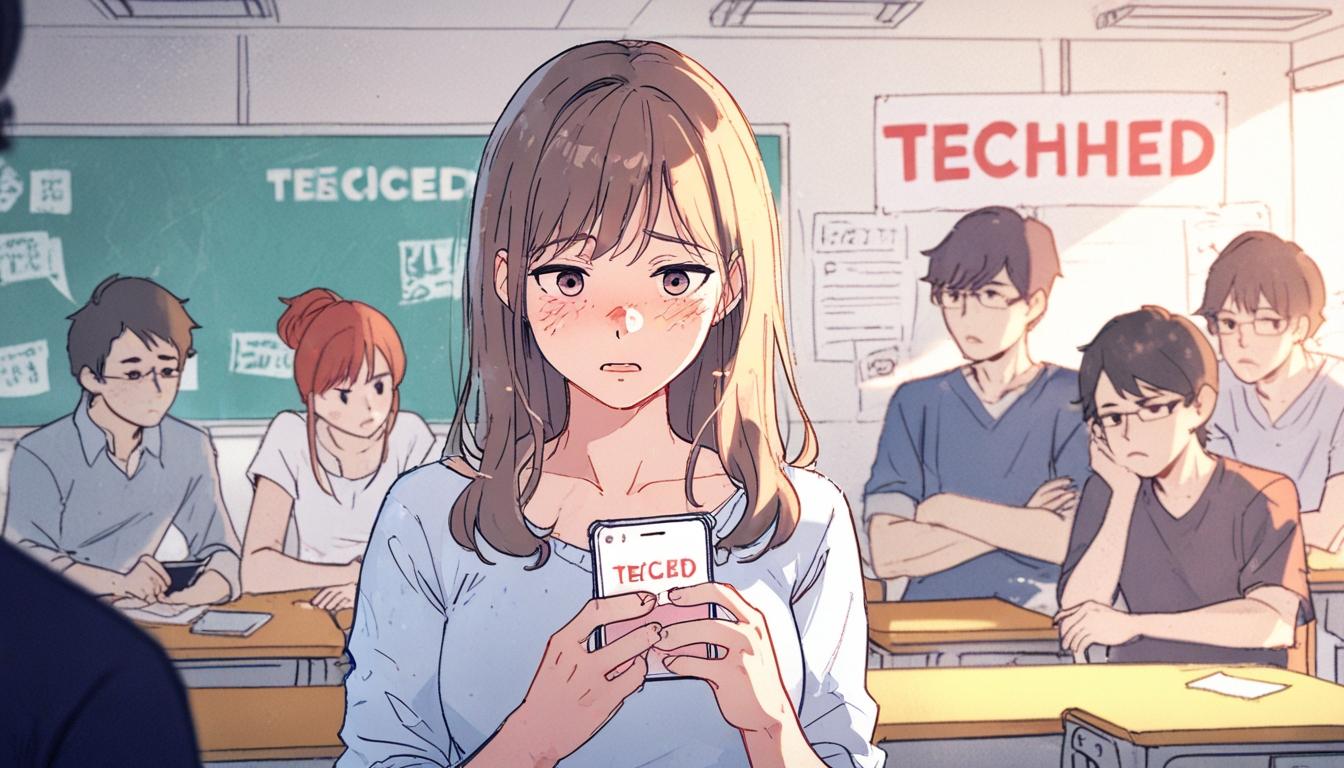A mother from Bath, Miranda Wilson, has launched a campaign named "Teched Off" to draw attention to the potentially harmful effects of smartphones and social media on young people, particularly as students gear up for their GCSEs and A-levels. This initiative comes amid growing concerns among educators and parents alike about the implications of excessive screen time on young learners’ academic performance and mental health.
Wilson's campaign is driven by a stark belief in the necessity for legislative action to limit smartphone use among under-16s. "What I would like is really simple; one is legislation to stop under-16s being on smartphones and social media, and two is a public health campaign so parents are educated about the harms," she stated. As technology becomes increasingly ingrained in the daily lives of youth, her appeal resonates with a broader discourse on the challenges posed by digital devices.
Research has already illuminated the negative correlation between excessive social media use and student achievement. Studies indicate that middle schoolers who engage heavily with social media tend to experience declining academic performance alongside rising levels of anxiety and depression. This worrying trend has prompted responses from various quarters, including educational institutions and policymakers. Over 20 states in the U.S. are contemplating or have enacted legislation aimed at reducing phone usage in schools, with public backing for these measures reflecting widespread awareness of the issue.
In an international context, Brazil has taken proactive steps in this area by introducing a law that restricts smartphone use in elementary and high schools, allowing devices only during emergencies or for educational purposes. The intent behind such legislation is to enhance learning environments, addressing concerns not just about distraction but also about bullying and mental health conditions exacerbated by constant connectivity.
In the UK, some schools have already moved to implement strict cellphone policies. Thomas Mills High School in Suffolk has introduced a comprehensive ban on smartphones during school hours in response to rising mental health issues among students. This action follows research that highlights links between smartphone usage and conditions such as anxiety and depression. A survey revealed that almost half of the British public supports a total ban on phones in schools, illustrating a growing consensus that action is necessary to safeguard young people's well-being.
Beyond the legislative discourse, practical interventions are also being trialled in educational settings. For example, at Jacques-Feyder high school in Épinay-sur-Seine, near Paris, educators have launched a programme to monitor and reduce students’ screen time. By establishing a system where students must disclose their phone usage weekly, the school has successfully decreased average screen time from over seven hours to just under five. Despite initial resistance, students have acknowledged their reliance on smartphones, particularly for social media platforms like TikTok, which have been shown to disrupt both sleep and academic focus.
The collective response from various communities highlights an urgent need for a reevaluation of how smartphones are integrated into the lives of young people. As campaigns like Teched Off gain momentum, the conversation around ensuring a balanced approach to technology continues to evolve. The challenge remains not only to protect academic integrity but also to foster a healthier societal framework for the digital generation.
Reference Map
- Paragraphs 1-3
- Paragraphs 1-2
- Paragraph 3
- Paragraph 4
- Paragraph 5
- Paragraph 6
- Paragraph 6
Source: Noah Wire Services
